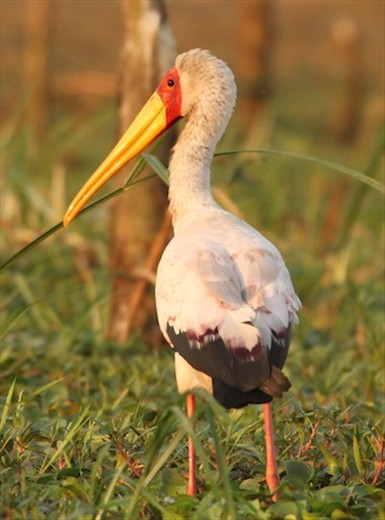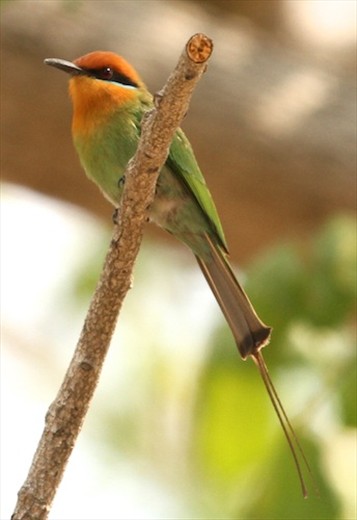“They are going into the park to fish. Illegally.” Elwen, our guide and canoe poler said. I thought he would scold them, him being a guide and all, whose livelihood depends on a well-managed park. Instead he greeted them by name with a shared laugh, probably at our expense. Illegal fishing, like poaching, is unsustainable and harms everyone. If the park allowed regulated subsistence fishing, everyone would come out ahead. But this is Africa and (repeat after me) “Africa Always Wins.”
Elwen’s cavalier attitude towards the fishermen pissed me off, not so much the guys with the wicker fish traps but the ones with the seine nets hundreds of meters square. Even the hippos grunted their disapproval.

Yellow-billed stork
Birding from a canoe is quiet, peaceful and gives you a different perspective – closer to the ground, or water, as it were. We saw thirty or more species as we pushed through the papyrus and water hyacinth, literally thousands of birds but only one new species, the long-toed lapwing. I did improve on many photos, especially the yellow-billed stork.

Bohm's Bee-eater
Evans was waiting when we returned so we hurried our “full English breakfast” and drove the few kilometers to the park proper. I have gotten used to the signing-in ritual of Malawi national parks and even had the exact change for today. Liwonde is small for a national park with only about 50 km of roads, dirt, of course, but not too bad. There is a lot of open space and the leafless trees make wildlife spotting easier. We were so busy looking up for birds that we almost missed seeing the elephants – 40 of them. Hard to believe, isn’t it? We stopped to eat our lunch at Mvuvu Lodge, the upscale place deep in the park. It’s really plush but hardly worth the cost. One night at Mvuvu equals the annual salary of a working rural Malawi.